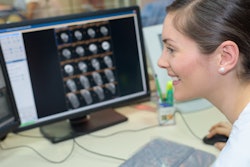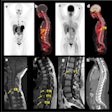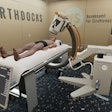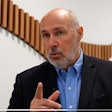The U.K. Royal College of Radiologists (RCR) has broadly welcomed the overarching new long-term plan by the National Health Service in England (NHS England) aimed at improving the health of the nation, but it emphasized that achieving the initiative's goals will depend completely on resourcing and staffing across the health service.
In its plan announced on 7 January, NHS England unveiled a technology and digital agenda intended to provide patients with an array of services that will help them take a proactive approach to monitoring their well-being and better manage their own healthcare. RCR President Dr. Nicola Strickland said that the RCR was pleased that the plan features a strong emphasis on cancer detection, with the introduction of dated targets for diagnostic turnaround and early diagnosis -- coupled with some acknowledgement from NHS England that diagnostic capacity is currently lacking.
"The new 28-day referral-to-diagnosis standard due to be introduced next year ought to be a good way of reducing anxiety for patients waiting for test results and speeding up diagnosis," Strickland said in a statement issued on 8 January. "However, cancer waiting time targets are routinely missed because we don't have enough radiologists, pathologists, [general practitioners], endoscopists, and other diagnosticians, so it's hard to see how we can meet an enhanced cancer target without more staff resources."
The RCR is delighted, however, that the plan clearly addresses the need for scanning equipment and is eagerly awaiting more detail about timelines for provision. While the plan mentions maximizing efficiencies and capital in radiology and radiotherapy provision, it frustratingly fails to recognize that the much-needed networking of radiotherapy care and image sharing across hospitals urgently require sustainable investment programs for both treatment and diagnostic imaging machines, as well as IT connectivity, she said.
"On stroke care, we are pleased to see NHS England support work by the RCR and specialist colleagues to train more consultants in life-saving mechanical thrombectomy," Strickland said. "Despite this, without more interventional radiologists, we simply will not be able to meet the mooted aim to treat 10 times more stroke patients within the next three years."
Strickland said it's a relief to see that NHS England has given prominence to the need for realistic workforce planning, which -- like vital scanner upgrades -- will be dictated by the forthcoming spending review. The RCR looks forward to inputting into the proposed national workforce group, she said.
"With chronic shortages across our specialties, we can but look ahead and hope our NHS receives the crucial funding it needs to staff and equip the service and realize the laudable ambitions of the Long Term Plan," she said.



















